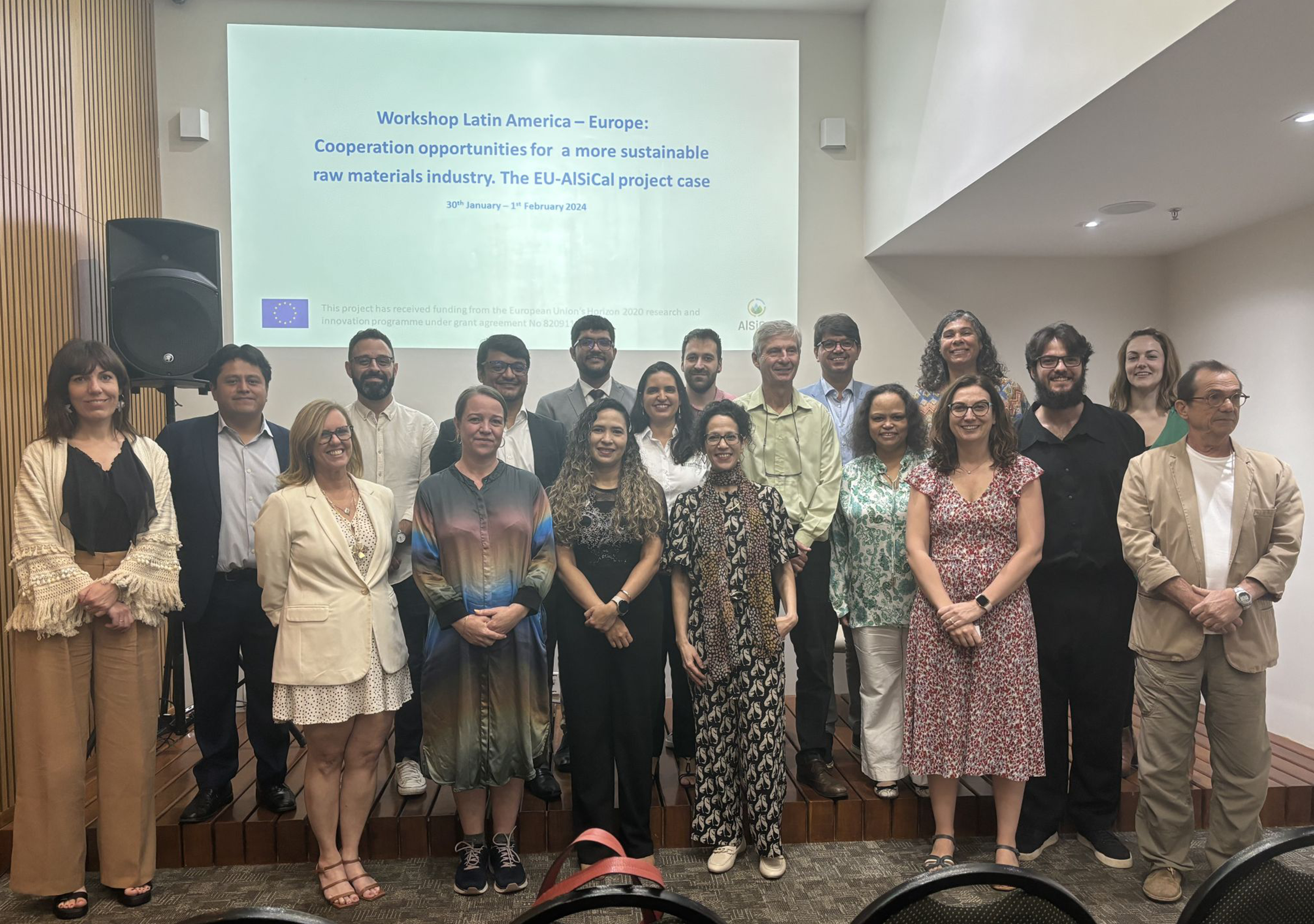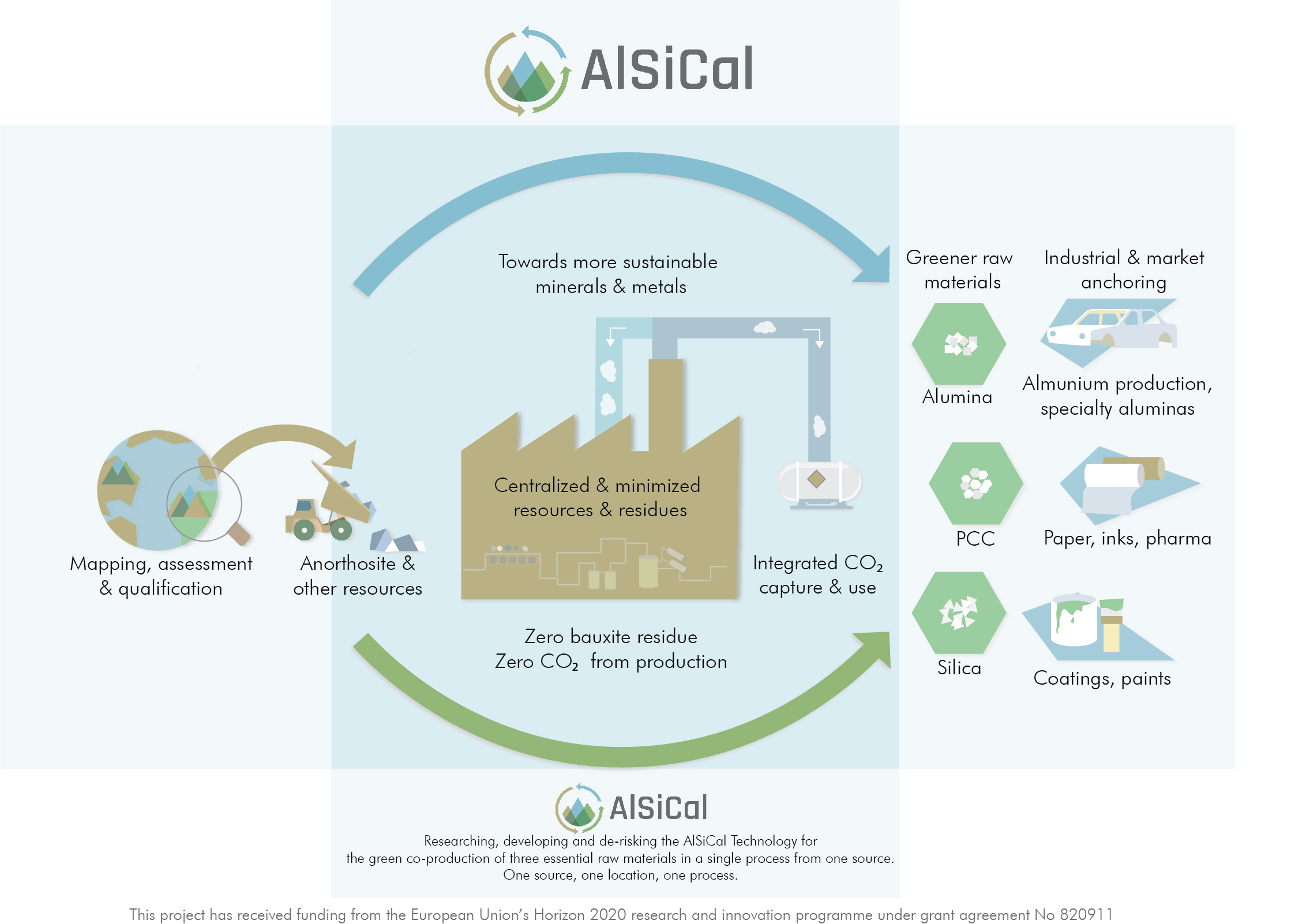
14 Feb 2024 / News
Fostering sustainable partnerships during the Workshop Latin America / Europe
The “Workshop Latin America/Europe: Cooperation Opportunities for a More Sustainable Raw Materials Industry” was held on January 30 and 31st by the Ibero-American Association of Geological and Mining Research (ASGMI), with support from the Brazilian Geological Survey (SGB), PNO Chemistry and the Institute of Energy Technology (IFE), Norway.
The program included speakers from more than 15 institutions in Brazil and other countries, such as Belgium, Denmark, Spain, Greece, Mexico and Norway. The activities were held on Tuesday January 30 and Wednesday January 31st, ending with a visit to the Terra Goyana mine, of bauxite and anorsites, in the municipality of Barro Alto, in Goiás on Thursday February 1st. In the coming days, the presentations will be made available on ASGMI website.
Among the initiatives presented are pioneering studies on anorthosites. This is a rare type of rock, which can be a sustainable alternative for extracting aluminum (mainly obtained from bauxite), as well as other minerals. “The anorthosite rock has a peculiar mineralogical formation, which makes it not only an industrial value, but also an important geoscientific value”, explained SGB geosciences researcher Ana Accioly.
The surveys identified occurrences of anorthosites in Brazil and provide a geoscientific basis that can boost and attract investments for the development of new aluminum extraction technologies. The metal is not only strategic for the energy transition (with applications in the transport, energy, civil construction industries, among others), but it also has impacts on Brazil’s economy. In 2022, the aluminum industry earned more than 140 million reais, and generated more than 500 thousand direct and indirect jobs, according to data from the Brazilian Aluminum Association (Abal).
European institutions have already come together to develop a project called “AlSiCal”, which enables the extraction of aluminum, silica and precipitated calcium carbonate from anorthosites. The initiative, financed by the European Union, seeks to reduce CO2 emissions, eliminate solid waste (using all rock components) and reduce countries’ dependence on bauxite.
The workshop provides an environment for articulation, and the expectation is that it will be possible to advance partnerships, as noted by the executive director of the Agency for the Development and Innovation of the Brazilian Mineral Sector (ADIMB), Roberto Xavier. “The discussions at this workshop are extremely fruitful and I hope that encouraging ideas will emerge so that future effective collaboration programs can take place between Brazil and the European community.”
Brazilian potential for strategic minerals
The research presented by the SGB, throughout the workshop, shows that Brazil has the potential to meet the demand for strategic minerals generated by the energy transition, with emphasis on: copper, graphite, lithium, nickel, phosphate, potassium, uranium and Rare Earth Elements.
“All the information that the SGB has obtained in recent years only proves Brazil’s potential for the production of critical minerals”, emphasized the executive coordinator of DGM, Maurício Pavan. The researcher added that, in addition to the occurrences already identified, there is potential for the discovery of new deposits.

 This project has received funding from the European Union’s Horizon 2020 research and innovation programme under grant agreement No 820911
This project has received funding from the European Union’s Horizon 2020 research and innovation programme under grant agreement No 820911